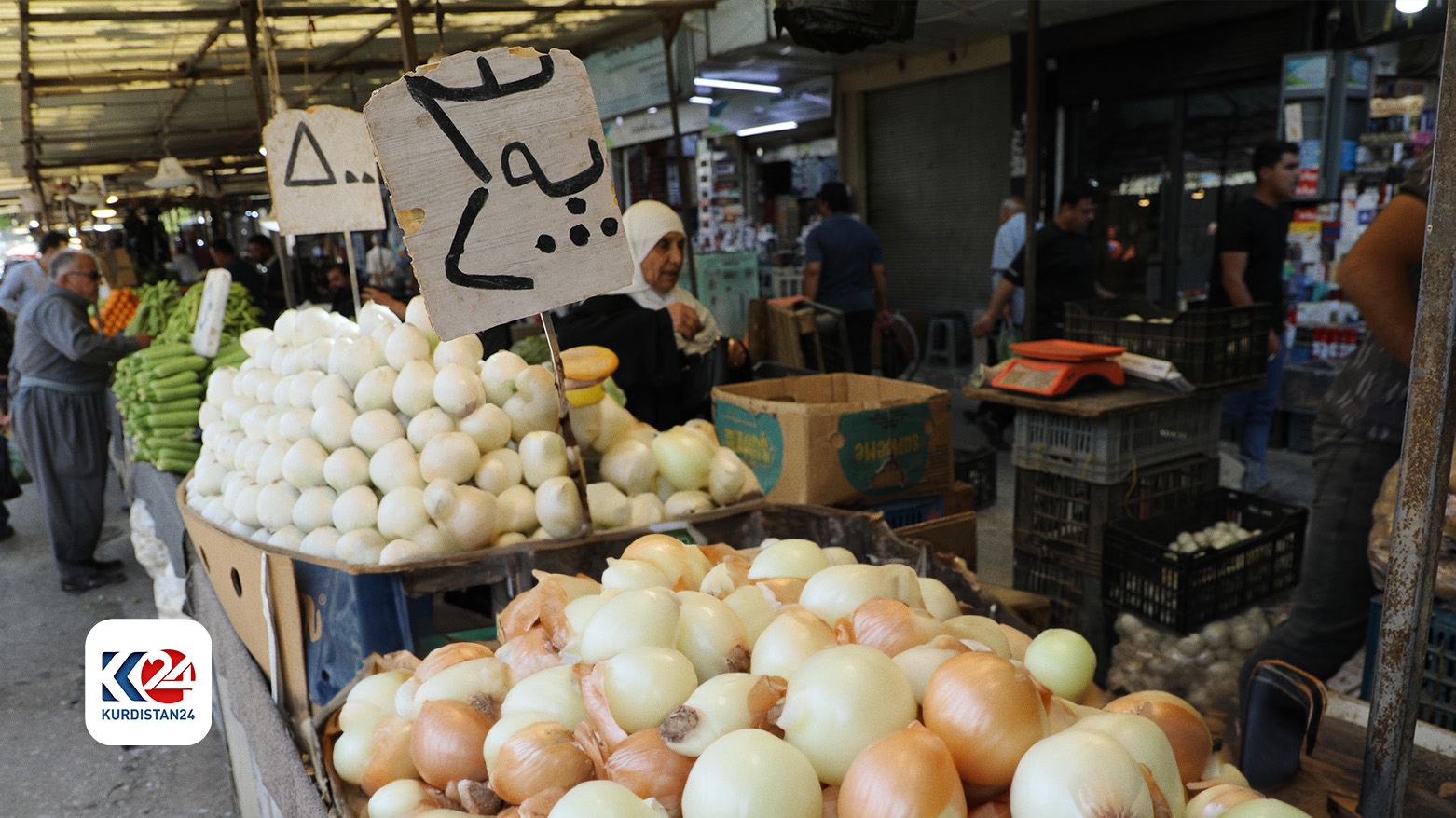Kurdistan Region achieves self-sufficiency in onion production, exports surplus
This development underscores the region's agricultural strength and its capacity to meet and exceed local demand, contributing to the economic stability and growth of Kurdistan Region's agriculture sector.

ERBIL (Kurdistan24) - The Erbil Directorate of Agriculture has announced a significant milestone in local agriculture: the Kurdistan Region has reached self-sufficiency in onion production.
Sayed Hemin Murad, the General Director of Agriculture in Erbil, shared this development in an interview with Kurdistan24 on Monday.
Murad stated that the region produces over 2,000 tons of onions daily, with the production season spanning from May 1 to November.
"This product is produced mainly to meet the local supply and demand, so the surplus is exported to the central and southern parts of Iraq," he explained.
Every day, more than 2,000 tons of onions are transported to the fruit and vegetable market, and between 100 to 200 trucks are dispatched to other parts of Iraq.
This significant production level reflects the region's agricultural capability and efficiency.
In 2023, the region's onion production included 11,342 tons of spring onions, 19,605 tons of red onions, and 76,688 tons of white onions.
The pricing of onions currently ranges from 300 to 450 dinars per kilogram, varying based on quality.
To support this extensive production and distribution, Murad mentioned that the Directorate facilitates transportation by providing support at checkpoints.
Meanwhile, Biryar Akram from the Sulaimani fruit and vegetable market noted that white onions are priced between 350 to 400 dinars per kilogram in Sulaimani, slightly cheaper than in Erbil.
The Kurdistan Region's achievement in reaching self-sufficiency in onion production is part of a broader success in vegetable production.
The annual output of onions now stands at millions of tons, allowing for not only local consumption but also export opportunities to other parts of Iraq and potentially foreign countries.
This development underscores the region's agricultural strength and its capacity to meet and exceed local demand, contributing to the economic stability and growth of Kurdistan Region's agriculture sector.